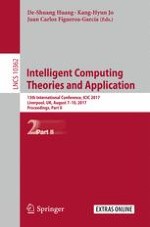2017 | OriginalPaper | Buchkapitel
Emotion Recognition from Noisy Mandarin Speech Preprocessed by Compressed Sensing
verfasst von : Xiaoqing Jiang, Dapeng He, Xinghai Yang, Lingyin Wang
Erschienen in: Intelligent Computing Theories and Application
Aktivieren Sie unsere intelligente Suche, um passende Fachinhalte oder Patente zu finden.
Wählen Sie Textabschnitte aus um mit Künstlicher Intelligenz passenden Patente zu finden. powered by
Markieren Sie Textabschnitte, um KI-gestützt weitere passende Inhalte zu finden. powered by
